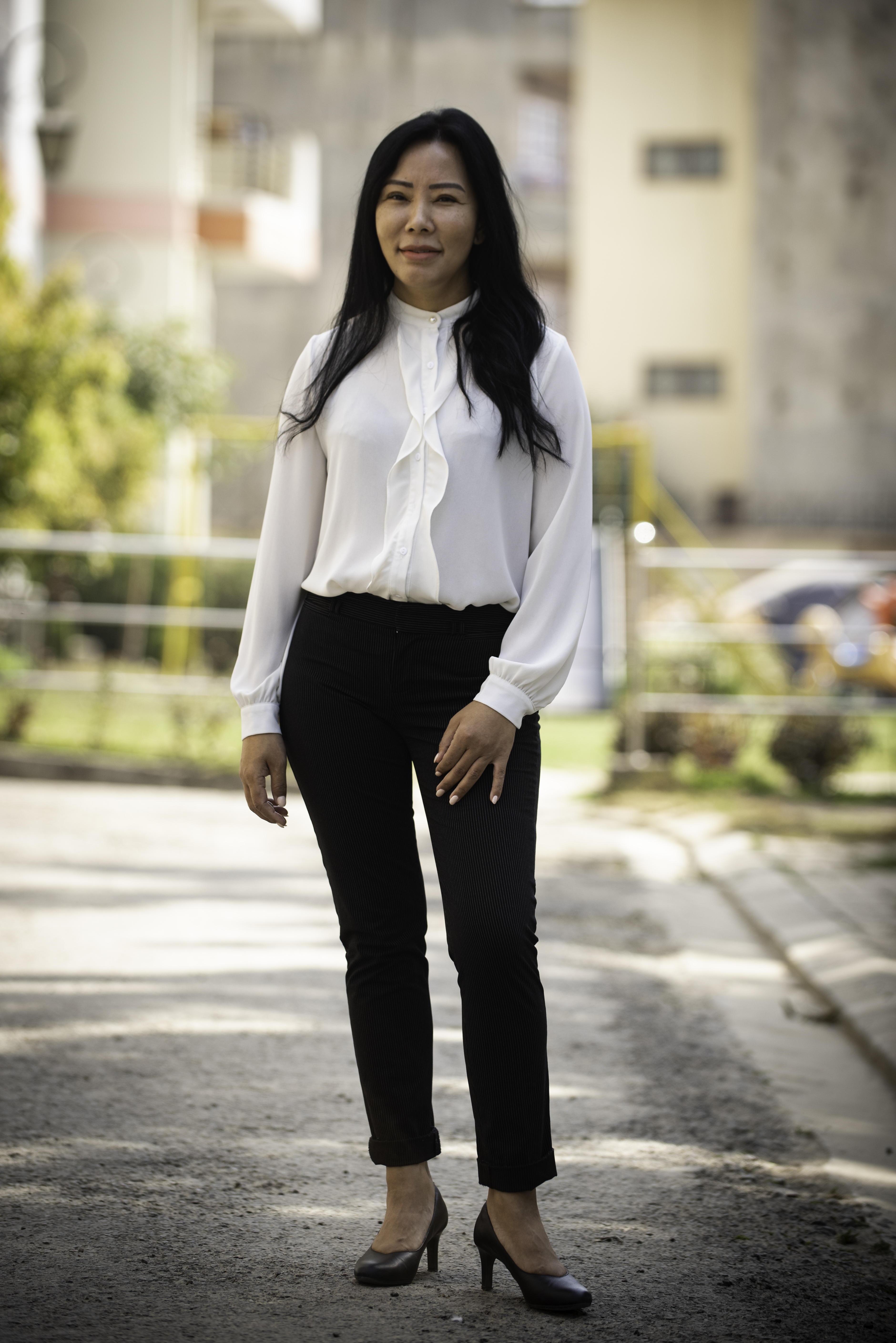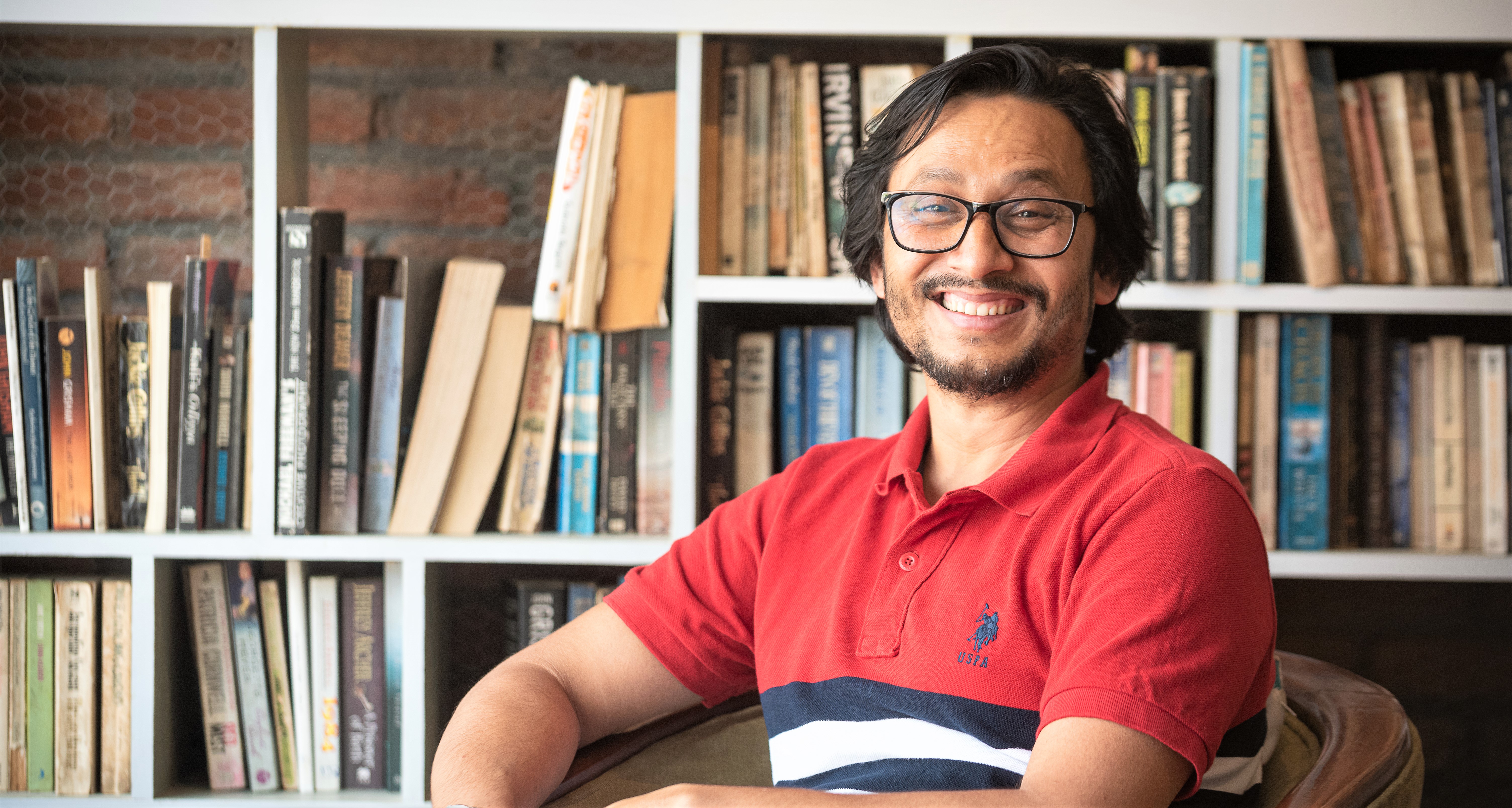Equal respect for all genders: male, female and queer
Three ways to realize the vision:
1) Greater inclusion of the LGBTIQA+ in state mechanisms.
2) Going beyond token representation by enacting systemic changes.
3) Fighting patriarchal mindset from the primary school level up.
Over the years, Nepal has witnessed many movements for gender equality and they have worked to an extent. But there is still a long way to go to create a gender-equal society. In our society, gender is still a binary subject: there are males and there are females. The gender equality movements too have by and large focused on the rights and equality of women. But what about securing the rights of the LGBTIQA+ community?
Coming from the Sherpa community, whose representation is negligible in state bodies, and being a female, I have faced several gender-based discriminations. What must the LGBTIQA+ community—tortured by even their family and society—going through? I am not much-educated on their movement, but comparing the situation of my community to theirs, they fare a lot worse. We must thus seriously think about the rights of LGBTIQA+ people. So my vision is to see Nepal as a country truly free of gender discrimination, a country that also acknowledges the rights and identities of LGBTIQA+ people.
There are many non-queer people who understand the issues of LGBTIQA+ community, but only queer people have experienced the problems for themselves. So it must be them—not non-queers—representing their community in state bodies. The Nepali society largely does not know understand LGBTIQA+ issues. Many people still think being a queer is abnormal. We should deal with this ignorance through education. Unless the curriculum is changed, right from the primary level, and the children are taught about gender in a proper way, including about the LGBTIQA+ community, it is difficult to change the way our society views the queer community.
We should also strive to build a society where women’s representation is actively encouraged. Gender-friendly policies alone will not suffice. If we look at the laws, Nepal is doing well to ensure women’s participation in government bodies, but their implementation is poor. Those in power have reduced the issue of gender equality and representation in state bodies to tokenism.
The law makes women’s representation in state agencies mandatory, but such inclusion has become a matter of formality. Women candidates are picked randomly and they have little knowledge about their jobs. Moreover, they have no say in policy- and decision-making. This culture of tokenism is not limited to women representation but also evident in the inclusion of marginalized communities.
In various meetings and conferences, women and people from marginalized communities are included just to show that they are inclusive and avoid controversies. But we must realize that tokenism will not eliminate our society’s patriarchal structure.
The patriarchal mindset is so entrenched in Nepal that even some women hold and profess antiquated views. Such women will never support female issues when they reach positions of power. We have to understand that even when a mother forces her daughter to marry against her will, her thought process is being governed by a patriarchal mindset.
Women are often judged by their physical appearance, personal life, and other arbitrary parameters, but never by their knowledge and skills in respective fields. Single and divorced women are always under suspicion. We need to normalize divorce and singlehood because it’s up to an individual how he or she chooses to live. These personal preferences should never come between their social and professional life. If a person can be happy single, then that should be fine.
As I work against gender-based violence, I have seen many cases of women continuing to stay in unhappy marriages and tolerating violence from their partners. This is because our society does not treat divorced women with kindness and empathy. Some women don’t want to divorce their abusive husbands out of fear that it might harm the life of their children. This is all because of the way our society views divorce and single women. We don’t take into account women’s wellbeing. We don’t think about the psychological effects on children who witness their fathers acting violently against their mothers.
Our patriarchal society will not accept changes to the established order and norms, but this is precisely why we must continue to fight to build a just and equal society.

Quick Questions:
A book you want to recommend to others.
Nandini Krishnan’s ‘Invisible Men: Inside India’s Transmasculine Network’
What is happiness for you?
A feeling of self-completeness.
A quote you live by?
‘Be yourself.’












